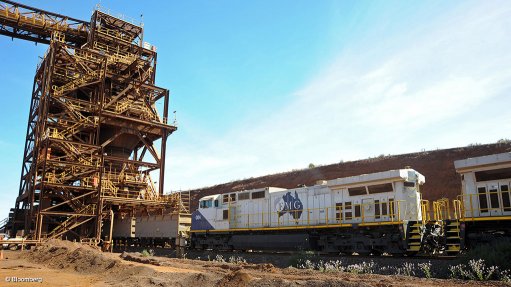
Photo by: Bloomberg
PERTH (miningweekly.com) – Iron-ore major Fortescue Metals has called on the Western Australian government to enforce its ‘use it or lose it’ policy around the state’s gas reserves, as the miner considers a move from diesel to gas across its Pilbara operations.
Fortescue CEO Nev Power said on Wednesday, at the launch of a report by advisory firm Deloitte Access Economics, that Western Australia’s significant natural gas advantage should translate into both a world-leading liquefied natural gas (LNG) export industry and competitive and secure domestic gas supplies to drive jobs and economic growth.
“Fortescue’s vision is to be the safest, lowest-cost iron-ore producer. By getting the policy right, we could make a long-term switch from imported diesel to reliable, competitively priced Australian natural gas,” Power said.
The Deloitte study, conducted on behalf of Fortescue, noted that there was a tightness in the current domestic market, as well as uncertainty about the future security of supply.
Moreover, the report pointed out that there were plentiful reserves of gas in Western Australia to meet both the domestic and LNG export demand for the foreseeable future.
Deloitte further warned in its findings that the imposition of a domestic gas reservation policy had the unintended consequence of linking the LNG export and domestic gas industries together, but suggested that Western Australia could transition away from the domestic gas reservation policy if a transparent and rigorous ‘use it or lose it’ approach was applied to the retention lease.
The Western Australian gas reservation policy currently reserved up to 15% of the state’s gas production for domestic use.
“In a competitive market, where users had long-term security of supply, we would expect domestic gas prices to reflect the cost of development, rather than LNG netback prices,” Power said on Wednesday.
Deloitte partner Chris Richardson pointed out that the strict implementation of the retention lease policy guidelines should lead to a drop in the long-term domestic gas price, adding that Deloitte’s modelling had suggested that some gas reserves currently held under the retention leases were commercially viable now to develop as standalone domestic gas projects.
“The impact on the Western Australian economy would be significant, with competitive and secure long-term gas available, generating 2 100 extra jobs and an annual estimated increase in gross state product of around A$2.5-billion in 2020, increasing to 2 600 jobs and A$4.8-billion in additional gross state product by 2030,” Richardson said.
Fortescue is currently the world’s fourth-largest iron-ore producer, running at a capacity of 155-million tonnes a year. The company has a forecast energy cost of more than $800-million in 2015.
Fortescue is also a member of the DomGas alliance, which represents natural gas users, infrastructure investors and producers in Western Australia. The alliance aims to promote security, affordability and diversity of gas supply.